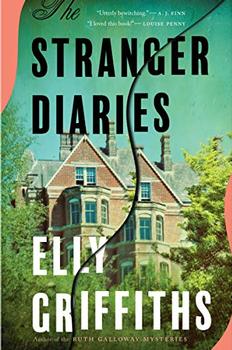Summary | Excerpt | Reviews | Beyond the book | Read-Alikes | Genres & Themes | Author Bio

Lucien Minor is unwell. Felled by a bout of pneumonia, he is bedridden and feeling not a little dejected, certain that his time on earth is rapidly drawing to a close. Given his stubbornly melancholic disposition, such a pessimistic outlook is far from unusual. Before Lucien has a chance to shuffle off this mortal coil, however, he receives a strange night-time visitor.
"Hello, Lucien," says the stranger. "Hello, sir," replies Lucien. "How are you?" asks the stranger. "Dying."
Thus begins Lucien's deathbed confession, in which he reveals to his interlocutor a deep-rooted regret that nothing much has happened to him, ever. A weak-willed and flaccid character at the best of times, the young man known to all as Lucy (the feminine diminutive of his name further diminishing him in the eyes of the reader), he admits to being "bored" by this world. Indeed, he "began to cry a little after he said this, for it seemed to him a pathetic statement indeed, and he was ashamed of himself, his paltry life." Apparently moved by such a predicament, the stranger (whom Lucy took to be God, but who could just as easily have been the Devil, or Hades, or any number of other apparitions — for what could this be other than a feverish hallucination?) grants the young depressive a second chance at life.
Unconcerned that his ennui-ridden existence seems to have been spared at the expense of his father's (who suddenly succumbs to pneumonia just as the son makes a miraculous recovery), Lucy, somewhat uncharacteristically, embraces this opportunity, and sets out to take up a position in a remote castle, owned by the eccentric Baron Von Aux. Grandly titled "undermajordomo," the job is little more than a general servant or, more precisely, an all-round dogsbody. Still Lucy welcomes the change and it is not long before he falls into the company of a pair of petty crooks; witnesses strange and sinister goings-on in the dead of night; falls in love (and in trouble) with the local beauty, "Klara the Beguiler"; and entertains worryingly murderous intentions towards Klara's intended. As the author points out, he was "at any rate, no longer bored."
There is much that is characteristic of Patrick deWitt in this novel, his first since the widely acclaimed, Man Booker-nominated The Sisters Brothers, which was published in 2011. His deeply dark deadpan wit is much in evidence, and like its predecessor, this is a black comedy of manners, rich in satire and sarcasm. The titles of both novels are clever plays on words, which almost makes the reader feel that they are sharing an in-joke with the author. Like The Sisters Brothers and de Witt's 2009 debut, Ablutions, there are elements of the picaresque in Undermajordomo Minor, provided by Lucy's interactions with a pair of lovable rogues, Memel and Mewe.
Undermajordomo Minor could also be called a comedy of contradictions. Almost nothing about the novel is as it first appears, with the narrative confounding and controverting our expectations. This is a fantastical novel but isn't fantasy. It styles itself on Grimm's fables and fairy stories, but doesn't provide any underlying moral lesson. And in an ingenuous twist of convention, it is also inversely Panglossian – whereas the eponymous protagonist of Voltaire's Candide is an eternal optimist who believes all is for the best in the best of all possible worlds despite being forced to undergo a series of disasters which contradict this maxim, Lucy is a character prone to defeatism and negative thinking who always seems to fall on his feet. He is a pessimist under the protective care of providence.
Classic Gothic literature has heavily influenced this book. For all that the time and place of the novel's setting are unspecified, the isolated, mountainous, distinctly Transylvanian locales of Undermajordomo Minor could very well be mistaken for the Carpathian Mountains, home to Bram Stoker's Dracula (see 'Beyond the Book'). Indeed, Baron von Aux's castle, an imposing, turreted edifice which stood "gray-black against the snow," is eerily reminiscent of Count Dracula's castle (or Mervyn Peake's Gormenghast, or even Horace Walpole's Castle of Otranto). There is, in addition, a rather unpleasant instance of blood-sucking which is perhaps best left unelaborated upon.
None of this, however, is to suggest that Undermajordomo Minor is in any way derivative. This book is Patrick deWitt at his pitch-black noir best — an author who is fast making the dark comedy genre his own.
![]() This review was originally published in The BookBrowse Review in September 2015, and has been updated for the
June 2016 edition.
Click here to go to this issue.
This review was originally published in The BookBrowse Review in September 2015, and has been updated for the
June 2016 edition.
Click here to go to this issue.

If you liked Undermajordomo Minor, try these:

by Elly Griffiths
Published 2019
Death lies between the lines when the events of a dark story start coming true in this haunting modern gothic mystery, perfect for fans of Magpie Murders and The Lake House.

by Laura McHugh
Published 2017
A haunting novel from the author of The Weight of Blood about a young woman's return to her childhood home—and her encounter with the memories and secrets it holds




If there is anything more dangerous to the life of the mind than having no independent commitment to ideas...
Click Here to find out who said this, as well as discovering other famous literary quotes!
Your guide toexceptional books
BookBrowse seeks out and recommends the best in contemporary fiction and nonfiction—books that not only engage and entertain but also deepen our understanding of ourselves and the world around us.